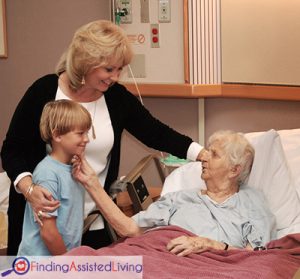Everyone wants to remain as independent as possible after retiring. The ability to live independently depends on a number of factors, and there is a great range of abilities to meet these challenges. Some people seem to age well for years, even decades after retiring while others encounter difficulties quickly. The passage of time cannot be halted, but this does not automatically mean that independent living must be sacrificed. Each person or couple has their own unique circumstances to consider, but some challenges are common to many, if not all, retirees. Let’s think about the most common obstacles to independent living.
Physical limitations
 The biggest thing that many retired people fear is losing the ability to perform the common, everyday tasks essential to an independent lifestyle. Climbing stairs, routine housework or maintenance, cooking, bathing, toileting or simply dressing oneself may become so difficult that remaining in your home is not reasonable.
The biggest thing that many retired people fear is losing the ability to perform the common, everyday tasks essential to an independent lifestyle. Climbing stairs, routine housework or maintenance, cooking, bathing, toileting or simply dressing oneself may become so difficult that remaining in your home is not reasonable.
If possible, the best way to deal with physical health problems is to delay or prevent them altogether. Engaging in a simple exercise program may make added years of independent living possible. Walking can strengthen legs, improve balance and reduce the type of falling accident that makes remaining independent impossible. Remaining as fit and active as possible is a basic requirement for living independently. You may know someone who is an invalid in their early 60’s and others who are quite able to care for themselves into their 90’s. There is great variation here, and it is due in part to the fact that some people become inactive while others continue to walk, swim, bicycle or engage in some form of physical activity.
When limitations cannot be avoided, it may be possible to remain independent by altering the environment, getting some outside help or changing expectations. Good senior home care or in-home care assistance may make it possible for the person to remain in the home they have loved for years. Simple measures like installing grip handles in the shower or bathroom aides that make using the toilet easier may help.
However, the best option for many is going to be some form of assisted living facility, senior apartment or a retirement community with some level of senior care. This is a compromise that preserves the greatest degree of independence possible while providing the senior care needed.
Mobility issues
Closely related to physical limitations is the problem of mobility. This includes both getting around the house and outside movement. The inability to shop for essentials, go to medical appointments or run personal errands can be a major challenge for those hoping to remain independent. Being able to shop, travel to recreation, keep doctors’ appointments and meet other outside needs is critical to staying independent. If you are choosing an assisted living facility or other senior housing option, one of the requirements should be good transportation services.
Illness
 A major cause of loss of independence is serious, debilitating illness. This can happen at any time in life, but it becomes more common with advancing age. Some illnesses can be avoided or delayed by good senior healthcare but conditions like Parkinson’s, cancer or multiple sclerosis may not be avoidable and will rob anyone of the ability to remain independent.
A major cause of loss of independence is serious, debilitating illness. This can happen at any time in life, but it becomes more common with advancing age. Some illnesses can be avoided or delayed by good senior healthcare but conditions like Parkinson’s, cancer or multiple sclerosis may not be avoidable and will rob anyone of the ability to remain independent.
Being diagnosed with a serious illness like cancer does not doom one to a complete or even a partial loss of independence. Serious illness can be managed while staying “home instead”, especially with the help of an able, caring spouse or partner and good senior home care or home care assistance. Nevertheless, there is a point at which this is no longer reasonable. Wise people know that in sports, professional careers, lifestyles or personal situations, “the hardest thing is to know when to quit.” When remaining completely independent is no longer possible, the senior should transition to a senior living environment that offers the best blend of independent living and assistance. Investigate options like retirement communities and assisted living facilities, but remember that a skilled nursing facility is the best option for a severely ill person.
Loss of memory or cognitive ability
This is often a consequence of disease, but instead of revealing itself as a tumor, tremor or other physical symptom, it denies the sufferer the ability to reason or remember. Often, this is the most difficult challenge with which to deal because the victim may not realize that it is happening. They may resist changes that would benefit their health or quality of life.
It is critical that this situation be met with intervention by a family member or loved one as early as possible. Proper medical treatment, in-home care or other senior care options can extend the time that it is possible for the person to remain living independently in his or her own home. When completely independent living is no longer possible, an assisted living facility or some form of elder care that provides memory support may be the best option.
Loneliness and social isolation
This is an often ignored problem, but a real challenge to remaining independent. A person may age well physically but see a decline in their quality of life if they allow themselves to become socially isolated. This can sometimes be due in part to a loss of mobility or to some other unavoidable circumstance, but it is often caused by simply withdrawing from the outside world. As we age, our friends and family leave us, and if we do not seek to expand our interests and social contacts, we are certain to become isolated. Depression and a decline in physical health are likely to follow.
Allowing this to happen may be the worst consequence of losing the ability to live independently. It affects not only the person involved but also the people around them. Retirees and seniors have a huge store of knowledge, experience, skills, talents and time to give to their community, their families and to fellow seniors. Allowing oneself to lose contact with, and interest in, the surrounding world deprives the world of that asset. Do not allow this to happen. A good place to start might be four or five hours of volunteer service in your community.
There are many other challenges to living independently, too many to be covered in one short blog. The bottom line is that the challenges of independent living after retirement need not be faced alone. Finding Assisted Living and FindingAssistedLiving.com exist to help seniors or their loved ones to make the best choice for their situation. FAL can provide dependable, knowledgeable, unbiased advice on local providers of home health services, physical therapists and other services related to the maintenance of independent living. Please call on us for advice you can trust.
Thank you for visiting the web site of FindingAssistedLiving.com The information contained on this website is provided for educational and informational purposes only. The contents of this site are not and should not be construed as legal advice. The website is not an offer to perform services on any matter. This website contains general information from a variety of sources and might not reflect current legal developments, verdicts or settlements. Please consult a professional such as an attorney and or CPA when taking these matters into consideration for you or loved one.
